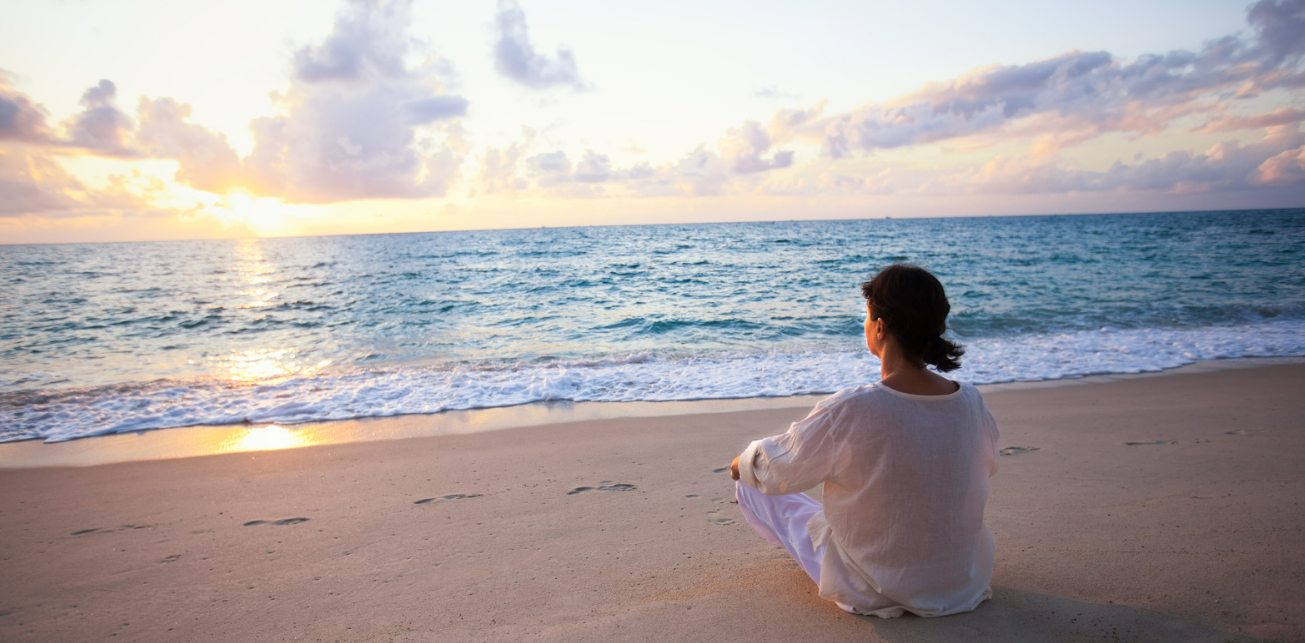Interview with Des Caminos
In this episode, we will uncover 3 keys:
- Unveiling the Path to Inner Brilliance
- Tools for Inner Transformation and Stillness
- Redefining Success in Your Own Light

A Podcast Transcription
Episode 29: Empowering overachieving empaths to silence their Inner Critic! Embodiment Life Coach~Des Caminos
Intro
Odiva Vasell: (00:00)
Welcome, my fabulous fempreneur. I am extra excited today. I have here with me Des Caminos, and she is an awesome, awesome superstar quality person because she really, really has a heart for women and the struggles that we go through and our inner critique. So let me just bring to the stage Desi. Hi.
Des Caminos: (00:40)
Hello, I’m so excited to be here with the amazing fempreneur community, and just thank you for cultivating such a rich sisterhood.
Odiva Vasell: (00:51)
You’re welcome. So, I have, um, you know, seen some of your master classes and all of the work that you’re doing. Tell us about how you got started on this entrepreneur journey. What motivated you? Yeah, it’s not easy, but you are in it, sister. You are in it.
Unveiling the Path to Inner Brilliance

Des Caminos: (01:15)
I am. I am right there alongside you, deep in this entrepreneur journey. And it all started really when I was in college. You know, I started. I have a degree in Psychology and another in sociology. But as I was pursuing my higher education, I remember mirroring a therapist. She said, “I’ve been with this client for seven years,” and I was like, I felt a disconnect. I was like, I feel like that’s not the point of therapy, of healing, is to have someone for that long. And so I quickly hung up my psychology shoes, and shortly after a few years, I moved to Czech Republic. And it was there that what ended up happening was my own kind of healing journey. I was in a foreign country; that inner critic was really loud, that relentless voice of comparison, of judgment, of failure. And so I really started to feel unsafe in my own mind, and I was escaping in alcohol and creativity and work because if I was busy, if I was producing, then I felt like that inner critic would be quiet. But it wasn’t. And so one day on a dirty theater floor, covered in shame, guilt, and embarrassment, I realized I didn’t even know who I was anymore. I had been living my life for this idea of success that everybody was pushing onto me. And at the time, I was teaching burlesque and boylesque, so really helping people kind of shed the layers of societal expectation. And so on that dirty theater floor, I was like, I have to change something about my life, and I think it’s the deep inner work. So then I went on to get trained in Dance Movement therapy to kind of enhance my burlesque classes. And in my own healing journey, I was introduced to somatic therapy, inner child work, and trauma work. And so I realized if this works for me and I felt so broken, and my inner critic was so gosh darn mean, I could break away from panic attacks; it just felt like it was the missing piece of the puzzle that I didn’t have in college. And so that’s really when I decided to take my education with my lived experience and turn it into a process and a modality that can help other people, specifically women.
Odiva Vasell: (03:32)
Wow, and that’s an amazing journey. That you left the US, you went all the way to Prague, but your inner critic followed you there.
Des Caminos: (03:43)
Yeah, and I think that’s it. You know, I think so often we run or we hide or we escape, and we’re like, “Okay, my life’s unhappy, or I’m feeling self-doubt, it must be the situation. So let me just change the situation.” And I think that’s a lot of the world we live in. It’s kind of the surface-level stuff. “Oh, it must just be this, so let’s just, you know, scrape off the top and don’t worry about the bottom.” And so, yeah, that inner critic came with me, first-class.
Odiva Vasell: (04:14)
Yeah, I was… I was its first-class ticket.
Des Caminos: (04:18)
Yeah, I’m over there. I’m, like, coach, and my inner critic’s in the first class, like judging me from the back. I’m like, “What are you doing?”
Odiva Vasell: (04:25)
Yeah, they know how to take up space, definitely. And I like what you said about the things that you did change in your life. You were getting busier with work and creativity and substances, well, alcohol in this case. And it was like, “Okay, if I just keep on this pathway moving faster, I could run away from it.”
Des Caminos: (04:51)
Yeah, and it just felt like it was just this mask that I kept putting on. When I feel guilty sitting on the couch because I should be doing more, so let me get off the couch and stay busy because when I’m staying busy, then I can’t hear that inner critic, you know? And so I made sure that my life was always busy, whether it was creating a new project or a new business or a dance routine. I just always wanted to stay busy, putting on different masks so that way, when I looked in the mirror, I didn’t see that version of myself that I felt deep down inside. I was that version, but the inner critic kept being like, “You’re staying busy because deep down you know this is all going to fail.”
Odiva Vasell: (05:33)
Interesting thing that struck me about what you just said about being busy and feeling guilty if you were taking time out or resting on the couch. I noticed that is really ingrained into American culture, especially when I left for Europe, and it was okay for people to take a coffee break in Italy or take a siesta or have a rest moment. Here, if I pick up the phone and call any of my contacts, they’re going to be like, “Oh, yeah, yeah, yeah, I’m busy, I’m busy this, I’m busy that, I’m busy the other.” And so the human connection, like, this is one of the reasons I started this interview process because we need that human connection to be inspired and see what other people are doing and be in the sisterhood of this entrepreneurial journey. But everyone is so busy, and sometimes I think they’re afraid to stop or admit that they need to stop.
Des Caminos: (06:40)
Definitely. I was terrified. I was terrified to stop because I knew when I stopped, everything that I had been running from would catch up with me, and that was scary. Also, women are more likely, like studies have shown that women are more likely to struggle with the inner critic, and it fuels them into impostor syndrome and that mindset of not enough. So, we always find ourselves, especially as women, being in that mindset of “What’s next? What’s next? I’ve got to send this email before I go use the bathroom.” It’s like, “I just have to.” We go into that space of “have to,” we go into that space of survival without even realizing it. And that’s where we don’t want to stop because we’re in survival mode. When we stop, everything catches up to us. Just to keep going, you know? And women, we’re multitaskers. We’re taught to be people-pleasers and nurturers and healers, but also successful. And so, it makes being still really hard because we don’t know. I don’t think all of us really know who we are when we are in stillness.
Odiva Vasell: (07:57)
Interesting. Who we are in stillness and meaning who we are in stillness without Mr. or Mrs. inner critic or monkey mind throwing our thoughts back and forth, back and forth, just being quiet.
Des Caminos: (08:14)
Yeah, you know, we are human beings, not human doings. And I think when we go into our stillness because it’s something so new for us, and we’re not taught how to be still, we’re taught to hustle and grind. So then there’s that fear of, like, I’m challenging the status quo. I’m not doing what I’m supposed to. Are people going to judge me? Are people going to reject me? Am I going to fail because I’m not working hard enough? And then the inner critic starts to go, and it makes it difficult for us to be still and learning how to be still with the inner critic and the monkey mind and lovingly redirect those thoughts is such a powerful tool that we’re just not taught.
Odiva Vasell: (09:00)
Lovingly redirecting those thoughts. Oh, that’s beautiful. Yeah, because one of the things that I’ve learned in this journey, the awareness of not doing any physical, should I say not physical but emotional violence to ourselves, like forcing ourselves to stop thinking about it or suppressing this emotion, lovingly doing it. Tell me more about that.
Des Caminos: (09:35)
Yeah, you know, I think especially as women, we just get so hard on ourselves. You know, we are our own worst critic, and we fall, you know, I think a difficult part of that is, you know, as women, we’re not really taught to stand in our value or in our boundaries. You know, we’re taught to people-please and take care of everybody else around us. And when we are going into that space of the inner critic, we get hard on ourselves. Why can’t I do it? I’m letting myself down. I’m letting my family down. We’re also more likely to go into hyper-awareness, where it’s like, “I’m aware of my thoughts, and I’ve been working on myself for six months. Why am I not further along than I should be? Now I’m so aware of my thoughts and my thinking and my emotions that I’m just living in the analytical mind.” And when we lovingly address, readdressing, or redirecting our thoughts, the purpose of that is to really, essentially, just go into a space without judgment. “Oh, my goodness, I’m catching myself again in this pattern of beating myself up. I’m not going to judge it. I’m just going to accept that this is the healing journey and path that I’m on. And with love and compassion, I’m going to say, ‘Hey, what if we go down this path instead?'” It’s just learning how to put speed bumps in that part of our brain that is a highway to really slow down our thought patterns, to lovingly and safely redirect our thoughts because if we try and do it too fast, the nervous system is going to be like, “I don’t trust it. It’s happening too fast. I don’t believe it. It doesn’t feel safe in the body.”
Odiva Vasell: (11:13)
Doesn’t feel safe in the body. I like this. Because I can think of, and I’m sure other people can relate, when someone brings something to your awareness, like you’re listening to a good talk or a master class, and they’re telling you the thing that you need to change in your life, and you immediately start thinking, “Yeah, I could change this. I could change that.” And yeah, the system does get overloaded, and by the time they finish talking, you’re like, “Reject, can’t do it.”
Des Caminos: (11:47)
And again, it’s because I think we’re going in that mindset of what’s next. Now I’m aware, so now I have to go into the what’s next. We don’t give ourselves the stillness, which is so important for integration. All of the thought patterns that we’ve learned, our inner critic, it’s been developing in our mind and body for decades. The idea that it should be happening overnight or in an hour, it’s not fair because the journey is beautiful and it’s layered and it’s multifaceted. And so, we really have to learn how to find our own internal sense of safety. So when we go into that place of awareness, we can hold that awareness with intention and stillness and allow integration. So then we can really start to take empowered action instead of action that’s like, “Oh, I just need to be doing what’s next. I have to be doing something,” taking empowered action instead.
Odiva Vasell: (12:52)
And so, what did that transformation look like for you? Did this happen in Prague, or did this happen when you came back?
Tools for Inner Transformation and Stillness

Des Caminos: (12:59)
Yeah, yeah, it’s what happened when I was in Prague. The transformation was a journey, you know. I was diagnosed with borderline personality disorder in 2014, and so there were certain symptoms of that that were really difficult for me: a distorted sense of self, emotional dysregulation, high anxiety, intense fears of abandonment. And as I started this healing journey, it was hard. I had to look at traumas of my past; it was scary. I didn’t want to do it. You know, and I think a part of me thought, like, what’s the point? You know, I’m the anomaly, I’m the broken one. It works for everybody else. Again, allowing the inner critic to take over. And for me, when I really learned how to lovingly redirect my thoughts, it changed my whole life. It also changed the way that my life looked. You know, I wasn’t nurturing relationships that were surface level anymore. I had depth, and I wanted people around me to have depth. So, my friend group changed a little bit, my business got bigger because I was doing it from a place of intention as opposed to a place of urgency and have to. I wasn’t in survival anymore, and my content, my copy, the people I was attracting, they also weren’t in survival anymore. And I think that was a really big transformation was the people that I was attracting and aligning with. And then, of course, you know, all the other benefits, like I had chronic pain my whole life went away. You know, it took a few months for me to kind of get that because I was working with the stored trauma in my body. So, I was able to say, “Where is the sciatica coming from? Where is that lower back pain? What trauma or belief is that connected to, and how can I heal it?” And then I really just, the big thing was I just felt safe in my own mind. I trusted the decisions I was making. I didn’t make plan Bs. I wasn’t winging myself, and I wasn’t expecting. I just was not expecting the other shoe to drop, you know. I think sometimes we’re always like, something bad’s going to happen right around the corner, you know, especially as women. I think we get nervous when we go down the sidewalk sometimes by ourselves. And for me, that was the biggest transformation. My clients started showing up more because I think they were also out of their survival, and I was attracting that. I felt safe in my own mind, my back pain went away, and I really was able to move out of the analytical mind and drop into the present moment with people and with myself.
Odiva Vasell: (15:39)
So, you, okay, okay. Because I hear so much, and I’ve studied so much about, as you say, dropping into the present moment. And people say, “Okay, just sit there and every day for five minutes, ten minutes, and then just count and breathe, and you’ll do it.”
Des Caminos: (15:59)
Yeah, but that can be so hard for people, especially for women, especially for anyone who’s had trauma because our body’s been in survival for so long, we don’t notice it. So, the act of staying still triggers that survival. We don’t feel safe, and sometimes four minutes of stillness can feel like an eternity and can trigger people into high levels of anxiety or stress. And so, an invitation that I always tell people is to just start bringing in gentle acts of mindfulness, little things that you can do with your body that don’t require you to be still with the intention being to start training the brain how to go slow because to ask someone who goes fast, fast, fast, to just stop, it’s probably going to be a rough time. But if you’re like, “Hey, I know you’re going really fast. Before I ask you to stop, I’m just going to ask you to slow down. I’m going to get you comfortable going slow, feeling safe going slow, and then we can get you to stop.” You wouldn’t have a moving vehicle that’s going a hundred miles an hour just slam on the brakes. And I think that’s when it comes to connecting to our body and grounding and mindfulness. We have to remember that, too, that for those of us who are going really fast, we can’t just stop abruptly. It’s not safe; it’s not sustainable.
Odiva Vasell: (17:16)
Okay, okay. It’s not safe. Yeah, you feel like you’re going to just go right over the edge of the cliff, and of course, yeah, you might just compile all that energy, and then boom, you’re over.
Des Caminos: (17:30)
Or you hate it, and you’re like, “I’ll never do that again.” Like, that sucked, you know? It turns into its own little kind of trauma experience for like, “That, I hated that.” You know, we get that resistance towards it or maybe we like it, but we’re not going to commit to doing it every week because that sucks. So, it’s not sustainable either. And that’s what healing and transformation should be, something that’s safe, that’s loving, and is sustainable, something that you can continue to do throughout your life without that same level of resistance you had in the beginning.
Odiva Vasell: (18:03)
That is so precious, and I love what you said about people feeling the fear and the abandonment. The minute that they stop to say, “I’m just still, I’m resting, I’m not doing anything,” could lead to judgment, rejection, and abandonment. And anyone in survival mode, that’s the last thing you want to face: people rejecting you or leaving you. But in your case, the wrong people, the wrong relationships left you, and you kind of transformed and were able to move into newer relationships, healthier relationships.
Redefining Success in Your Own Light

Des Caminos: (18:43)
Yeah, you know, I imagine it where it’s like, you know, when you’re panning for gold and you’ve got that sifter. So you’re out there; you’re in the lake or the river, and you’re just kind of putting your hands in this mud trying to find gold. And then you could just kind of sift it, and that’s what it felt like, that my transformation was for me. It was looking at this dirty lake that I had been in that was filled with expectation and trauma and judgment and ideas of success and womanhood. And finally, it’s like I took the power back, and I said, you know what? I’m going to get out of this river. But before I get out of this river, everything that’s mine, I’m going to put in this little sifter, and I’m just going to shake it. Whatever is not gold, whatever is not making me feel safe, whatever is not really mine, I’m going to let it fall through, and I’m not going to take it with me. So many things fell through that, and I was, you know, a company. I decided, like, that’s it; I don’t want to do that version anymore because it’s not me. It wasn’t making me happy. And so, I just let it sift through, regulated myself, and then I walked out with the gold, with my authentic self, with the relationships in my life that are deep, you know, women who were like, I’m here to talk about the real story of womanhood, the struggles, yeah, not just the, I’m here to take care of you, but the ones who are like, I don’t know how to say no anymore.
Odiva Vasell: (20:14)
Wow. So, Desi, tell us now about your business mission and how you help women.
Des Caminos: (20:23)
So, my business is called The Interconnected Self, and it’s a transformational coaching practice where we get to the root cause, the underlying challenge of that inner critic, you know, of the mindset of not enough. And my mission really, what motivates me and inspires me every morning is just being a part of the movement that is empowering women, that is empowering women to trust themselves, to commit to themselves, and to hit a point in their life where they are able to shift out of survival and into thriving. You know, my mission is to live in a world where women feel safe and confident in expressing their desires and dreams, and we’re not swallowing our words anymore. And that’s my mission.
Odiva Vasell: (21:13)
Yes, that is beautiful. And I know that the people hearing this are going to be able to relate to this and are going to be more hopeful knowing that there’s a way to lovingly bring yourself to that self-acceptance, that state of just being without doing as a person. And I think that’s so beautiful. So thank you. Thank you so much, Desi, for joining us today and enlightening us on your work.
Des Caminos: (21:50)
And thank you so much for creating this container. You know, what you do is you really create such a beautiful garden of seeds to be planted, of thought, of love, of self-acceptance. And so thank you for this community for the fempreneurs and for creating this garden that we can all benefit from.
Odiva Vasell: (22:11)
Thank you.
[music]
Conclusion
In conclusion, Des Caminos’ journey stands as an inspiring testament to the power of self-discovery and resilience. Des not only teaches women to break free from limiting mindsets but also empowers them to stand confidently in their inherent value. Having shifted away from traditional psychology and therapy, Des brings a unique and transformative approach to coaching. Her mission to dismantle the shame and blame game for women resonates with authenticity and determination. In embracing Des’s story, we find a call to action, urging us all to step into our true worth and rewrite our narratives with strength, compassion, and an interconnected spirit. Let Des Caminos inspire you to embark on your own journey of self-discovery, breaking free from limitations and embracing the powerful, authentic woman within.